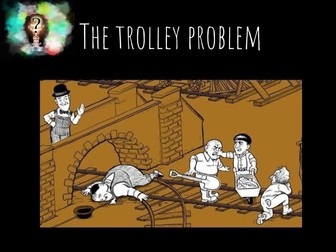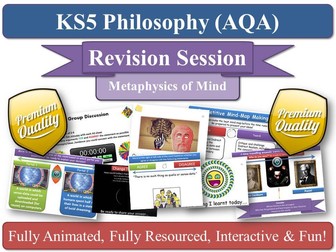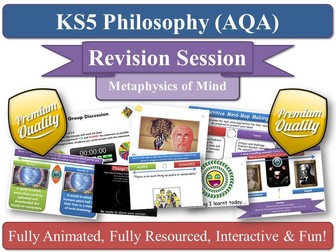
reason for abolition of slavery
A worksheet differentiated for the higher-, medium- and lower-ability students, containing reasons for the abolition of the slave trade, and slavery itself.
Could be used as a card sort or a colour-coded worksheet. Students can decide which factors help to end the slave trade, slavery itself, or both.
Students can sort for political, economic social and cultural reasons.
Students are invited to make decisions on the most important 3 reasons at the end of the sorting. This can lead to lively debate.


![A2 AQA Philosophy 13 x Revision Sessions [Complete Set for Every Section of A2 Content!] Metaphysics of God & Metaphysics of Mind](https://l.imgt.es/resource-preview-imgs/78ceee1e-1137-426f-aea3-065c670e1021%2FCoverBundle.crop_957x720_0%2C0.preview.jpg?profile=res-img-med-legacy-v2)



![AQA Philosophy - A2 Revision Bundle [ Metaphysics of Mind] (NEW SPEC!) Covers: Dualism (Substance & Property), Mind Brain Type Identity Theory, Physicalism / Behaviourism , Eliminative Materialism and 'What do we Mean by Mind?' topics.](https://l.imgt.es/resource-preview-imgs/20017bde-e490-4b35-ab35-a2ea23ccbd6d%2FCoverBundle.crop_957x720_0%2C0.preview.jpg?profile=res-img-med-legacy-v2)


![The Massive Psychology Christmas Collection! [The Big Pack] (Christmas Teaching Resources, Fun, Games, Board Games, P4C, Christmas Quiz, KS3 KS4 KS5, GCSE, Revision, AfL, DIRT, Collection, Christmas Sale, Big Bundle] Psychology Neuroscience Neurology!](https://l.imgt.es/resource-preview-imgs/4e4c5e0d-adc4-427e-a211-b96477f2572d%2FChristmasTeachingResourcesLargeCollectionChristmasGCSEKS3KS4KS5ASA2Xmas.jpg?profile=res-img-med-legacy-v2)








